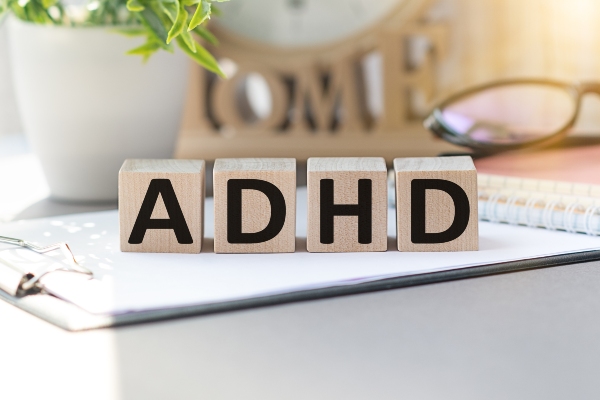Four Signs You Have Post-Traumatic Stress

Post-traumatic stress disorder (PTSD) can affect anyone of any age. It can develop after a traumatic or terrifying event occurs to someone or around someone who witnessed it. It is important to be able to identify the early signs of post-traumatic stress to allow for early intervention and reduce the risk of prolonged symptoms or a condition that grows increasingly worse.
What is post-traumatic stress?
Post-traumatic stress disorder, or PTSD, occurs after experiencing or witnessing a traumatic event. With PTSD, the individual has not yet recovered from the traumatic event. When the individual is unable to improve on their own, then treatment is likely necessary to help deal with the trauma properly. Post-traumatic stress is most commonly treated through psychotherapy (i.e. cognitive-behavioral therapy), medication, lifestyle changes, and, in some cases, alternative therapies.
Notable signs of post-traumatic stress
Common signs that indicate post-traumatic stress are having gone through a traumatic or terrifying event, exhibiting specific symptoms of the condition, and showing a tendency to avoid external reminders. The following is a detailed review of four of the more notable indicators that someone is dealing with post-traumatic stress.
The individual has gone through a traumatic event
Of course, the first sign of possible post-traumatic stress is having experienced a traumatic event. This could be something that has happened to an individual. Post-traumatic stress can also develop after witnessing something traumatic as well. Many individuals with post-traumatic stress hide or dismiss their symptoms, so detecting them can often be a challenge. Subsequently, it is encouraged for anyone who has gone through a traumatic experience to receive some level of counseling.
The individual exhibits symptoms of post-traumatic stress
Loved ones should always look for the symptoms of post-traumatic stress if they know someone who has gone through a difficult experience. It is also helpful for those who have had traumatic experiences to understand the symptoms as well. These symptoms include but are not limited to:
- Distressing memories
- Nightmares and flashbacks
- Avoidance of the trauma
- Negative thoughts
- Being easily frightened
- Difficulty sleeping
Of course, these are some of the more common symptoms of post-traumatic stress, but there are numerous others that a person may exhibit. The person’s age may also play a role in the symptoms they show.
The individual avoids external reminders of the traumatic event
One of the most common signs of post-traumatic stress is avoidance of reminders of the traumatic event. This may include a fear of doing certain things or going to certain places that remind them of the incident, among other types of avoidance. With that said, children may often re-enact the experience through demonstration or play.
The individual shows behavioral and mood changes
Many who are struggling with post-traumatic stress can hide their symptoms relatively well, but there may be noticeable changes in their behavior in general or their overall mood. For example, someone struggling with post-traumatic stress may become more hostile or irritable toward others that they love and show signs of apathy about life in general.
Treatment options for post-traumatic stress
The treatment plan is personalized for every patient according to their symptoms and unique needs. Below are four common types of PTSD treatment.
Psychotherapy
There are several types of psychotherapy used to treat PTSD. Notably, the most common type is cognitive-behavioral therapy (CBT). Also called talk therapy, CBT involves identifying thoughts, behaviors, and emotions that cause stress and modifying them in an effort to alleviate symptoms. Other types of therapy that are common for PTSD treatment include prolonged exposure therapy and eye movement desensitization and processing.
Medication
Certain medications may be recommended depending on the patient’s needs. In particular, selective serotonin reuptake inhibitors (SSRIs) are a form of antidepressant that may help alleviate symptoms of post-traumatic stress. However, every treatment plan is unique, and many patients improve without medication.
Group therapy
Group therapy allows the patient to discuss their symptoms with individuals who are also treating post-traumatic stress. This helps identify coping mechanisms and reinforces to the patient that they are not alone.
Family counseling
If the post-traumatic stress is related to family conflict, then family counseling may be recommended. In other cases, family counseling may still be recommended if the source of trauma is not related to a family member.
Are you or a loved one showing signs of post-traumatic stress?
If you or a loved one has gone through one or multiple traumatic events, then we encourage you to get in touch to schedule a visit. We take pride in helping our patients learn to live happy and healthy lives free from mental health symptoms related to post-traumatic stress.
Request an appointment here: https://mb.futurepsychsolutions.com or call Future Psych Ketamine Clinics at (843) 788-9718 for an appointment in our Myrtle Beach office.
Check out what others are saying about our services on Yelp: Post-Traumatic Stress in Myrtle Beach, SC.
Recent Posts
Major depressive disorder treatment plans offer a structured and innovative approach to alleviating the burdens of depression. As mental health care evolves, new methods have gained recognition for their effectiveness in treating symptoms of this mental health condition. Knowing what to expect from these treatment plans can help create realistic expectations and improve your overall…
Attention-deficit/hyperactivity disorder (ADHD) is a neurodevelopmental disorder that affects millions of people worldwide. Common symptoms of ADHD include the inability to pay attention, acting impulsively, and having uncontrollable energy. ADHD significantly impacts how a person goes about their daily life. Fortunately, many treatment options are available to manage ADHD symptoms and improve overall functioning.Prescription medication…
Attention-Deficit/Hyperactivity Disorder (ADHD) is a neurodevelopmental disorder affecting children and adults. Fortunately, there are many ADHD treatments available. Early diagnosis and treatment are crucial for managing symptoms and improving quality of life. Whether you or a loved one is living with ADHD, it is important to understand multiple treatment options exist.The diagnosis of ADHD involves…
In recent years, ketamine treatment has emerged as an innovative therapeutic option for patients grappling with various mental health disorders, providing new hope where conventional treatments have fallen short. Initially known primarily as an anesthetic agent, ketamine's application within psychiatry has transformed mental health care significantly, particularly for those suffering from severe, treatment-resistant conditions.Ketamine functions…


